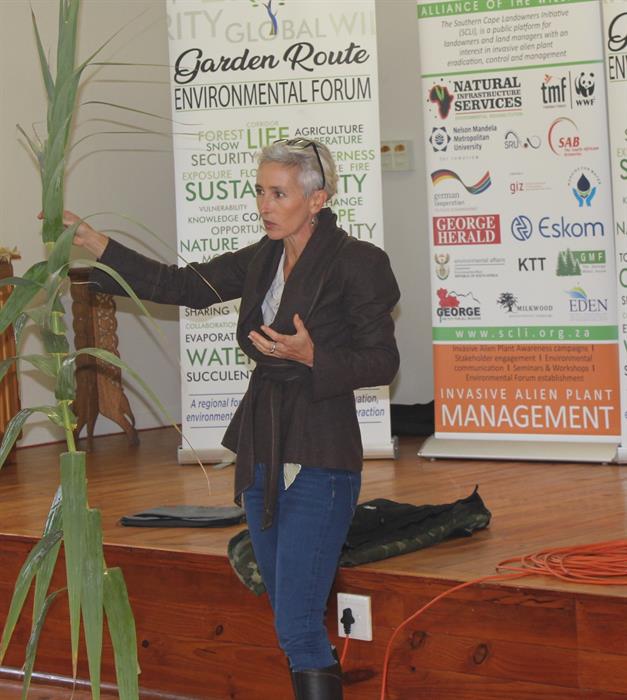GARDEN ROUTE NEWS - A recent workshop at the edge of the Goukamma River at Buffalo Bay, highlighted the plight of Garden Route river systems and the importance of responsible land management practices in reducing environmental risks, including water security and wildfire events, associated with invasive alien plants.
Cobus Meiring, of the Southern Cape Landowners Initiative (SCLI), says the Garden Route is a hothouse for invasive alien plants, and the region is in a seemingly perpetual struggle to eradicate and control them.
The prevalence and aggressive spread of invasive alien plants have a profoundly negative effect on the extremely vulnerable Garden Route environment and biodiversity.
Since the 2017 and 2018 wildfire disasters that ripped through the Garden Route, landowners and land managers have considerably upped their efforts to deal with invasive alien plants on their land.
Meiring says there has been a marked increase in activities aimed at addressing invasive alien biomass in the Garden Route, with more resources and better equipment dedicated towards it. Equipment focusing on "green energy", such as battery-powered chain saws, are also becoming more available on the market.
"Garden Route landowners are, generally speaking, enthusiastic in their land management approach and enjoy the natural beauty of their surroundings in an environment free of invasive alien plants, where endangered fynbos can survive and thrive, and along with it all associated indigenous biodiversity," says Meiring.

At the recent SCLI Landowner and Contractor Workshop, information was shared about advanced software programmes which, working via camera systems fitted on drones, can differentiate between indigenous and invasive alien plants extremely accurately.
This can assist land managers tremendously in their planning and budgeting for the extent of work they need to do to address invasive plants on their land, and to effectively track and audit their progress.
Drones
Advances in drone technology over recent years have enabled drones to easily carry up to thirty litres of herbicide and cover large areas affected by all sizes of invasive alien plants.
"This includes [covering] normally inaccessible terrain in a very short time span, and can do so cost-effectively with great accuracy and negligible collateral impact on indigenous growth that is often intermingled with invasive alien plants," says Meiring.
The workshop was concluded with a field visit to the Goukamma Nature Reserve to look at land totally overgrown by invasive alien plants since the 2017 wildfire disaster. Due to the Goukamma floodplain making access impossible, as well as Covid-19 issues with labour, this could not be addressed earlier.
Meiring says SCLI, along with private landowners and regional environmental entities such as SANParks and CapeNature, are in the process of setting the scene for a Garden Route Critical Rivers Initiative.
"The initiative is aimed at the better management of river systems in order to restore and enlarge the regional conservation footprint, and to achieve rewilding objectives in the face of a changing climate."

'We bring you the latest George, Garden Route news'
















